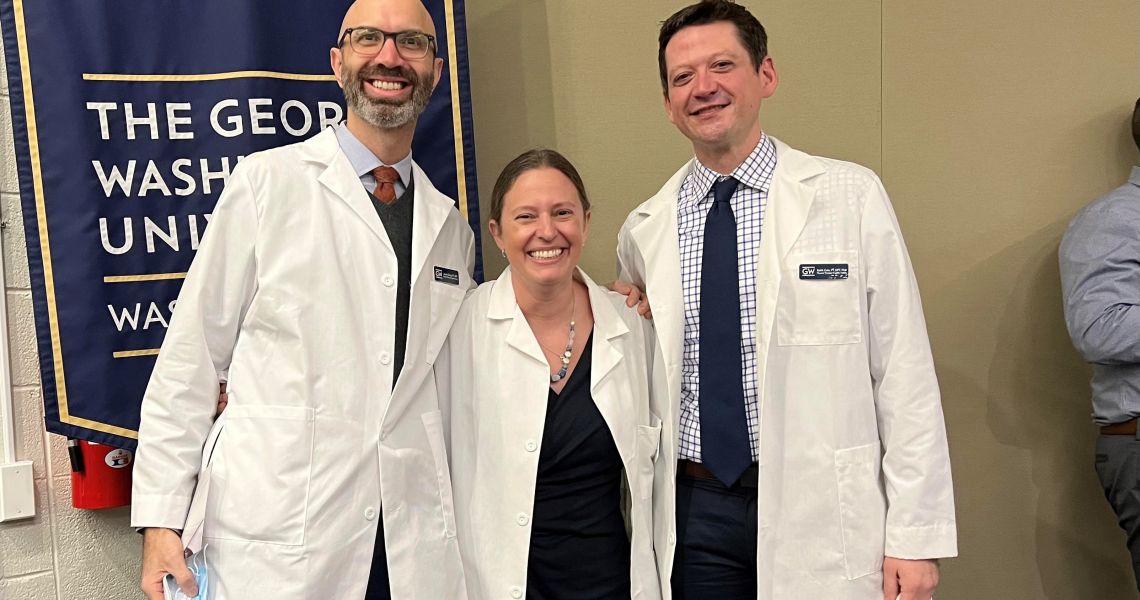Thanks to the vision and efforts of three faculty members of the Doctorate of Physical Therapy (DPT) Program at The George Washington University (GW) School of Medicine and Health Sciences, service-learning, community engagement, and research have been highlighted and strengthened in the curriculum.
The new Engaged Department Initiative, which stands for Educational Network of Grassroots Advocacy and Global Community Engagement, is a pilot program that lays the groundwork for meaningful and sustained community engagement between the GW DPT program and the surrounding Washington, D.C., community, according to the organizers. The initiative’s goal is to meet the ongoing needs of community partners, support the development of DPT students, and support faculty research and education.
Assistant Professor Keith Cole PT, DPT, PhD, MBiomedE, OCS; Visiting Assistant Professor Jason Dring PT, DPT, GCS; and Assistant Professor Erin Wentzell PT, DPT, PCS, DrPH(c) were awarded two grants from GW’s Honey W. Nashman Center for Civic Engagement and Public Service to launch the Engaged Department. The grants helped establish a relationship with community partner, Foggy Bottom West End Village (FBWEV), and funded materials for research.
FBWEV is a nonprofit that provides resources and support to aging residents in D.C.’s Foggy Bottom and West End neighborhoods. “This is the first step,” said Wentzell. “Our hope is that we can serve more communities in the D.C. area. By doing this intentionally, we want to have good outcomes for everyone involved: students, faculty, and the community members we partner with.”
The faculty say the initiative will give students an additional opportunity to practice hands-on skills outside the classroom. During their first year, DPT students will perform a balance and mobility screen for FBWEV members. In the second year, they will perform a second screening with more autonomy to practice psychomotor and clinical reasoning skills. Dring is excited “to see the students thrive and put into practice what they are learning.”
In conjunction with the project’s service-learning component, faculty have kickstarted Community Based Participatory Research. The research involves faculty quantifying the benefits of service-learning for both the students and community members. Faculty will track if general wellness and balance screens can help keep older adults independent and mobile for a longer period of time. As part of the screening, faculty will also analyze if the data collection from the mobility screens correlates with information obtained from an inertial measurement unit, a small watch-like device worn by participants that tracks gait and step count.
After the student-led screenings, the DPT program will provide FBWEV participants with general recommendations for balance, strength, and walking programs. Faculty hope that the recommendations will help members age safely and healthily. If severe impairments are noted during the screenings, faculty will recommend further treatment options.
Cole, the lead researcher, is thrilled to see the program come to fruition. “Regardless of whether the research yields significant results or not, there is value in giving the students space to practice their communication and hands-on skills,” he said. “By connecting with the D.C. community, we hope that community members see a value in physical therapy.”
